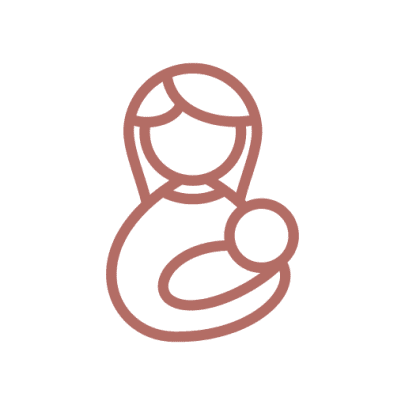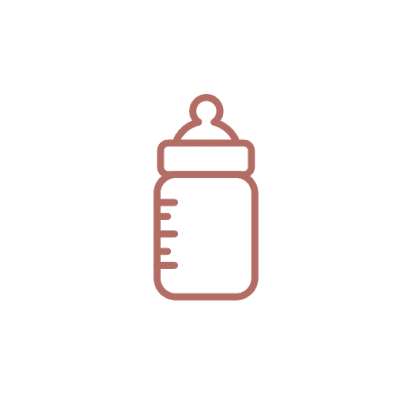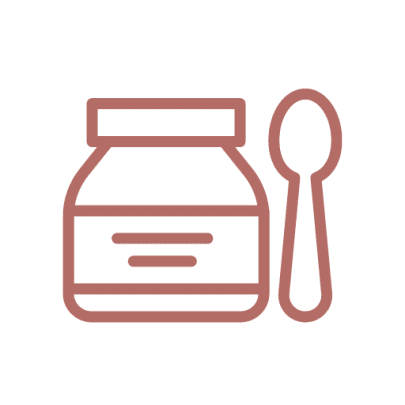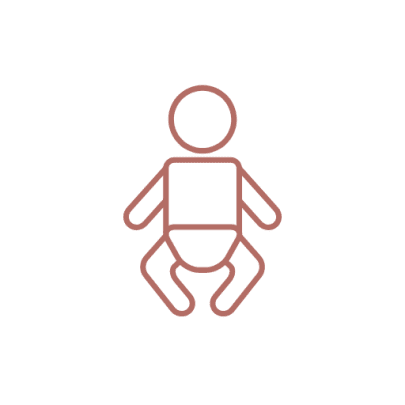18 September 2011, an article we were involved with for Woman’s Day magazine.
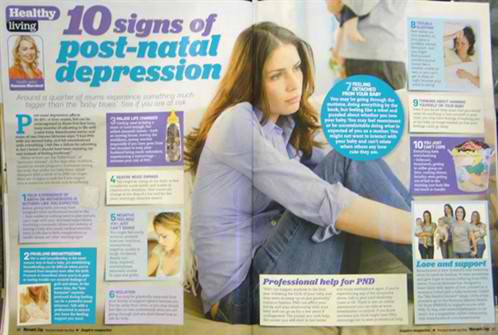
10 Signs of Post Natal Depression
Around a quarter of mums experience something much bigger than the ‘baby blues’. See if you are at risk.
Postnatal depression affects 20-30% of Kiwi mums, but can be unrecognised in those first few hazy, busy months of adjusting to life with a new baby. Breastmates owner and mum of two Frances McInnes says, “I had PND with my second baby, and felt overwhelmed with everything. I felt like a failure for admitting it, but I knew I should have been enjoying my son instead of feeling burdened.”
Many women get the “baby blues” or “perinatal distress”, in the days after childbirth, caused by excess pregnancy hormones leaving the body. But unlike the baby blues, which dissipate after a week or so, PND can linger.
Here are 10 signs to look out for if you suspect you or someone you know might be suffering.
1. Your experience of birth or motherhood is nothing like you expected.Before giving birth, you may have imagined what motherhood would be like – and then suddenly nothing went to plan and you can’t cope with your shattered expectations. Surviving a traumatic labour and delivery, or having a baby who needs medical attention early in life due to birth complications or health issues, are other warning signs.
2. Problems breastfeeding. We’re told that breastfeeding is the most natural way to feed a baby, yet successfully establishing breastfeeding can be difficult when you’re released from the hospital soon after the birth. Pressure to breastfeed when you’re in pain or having trouble can escalate feelings of guilt and stress. At the same time, the “love hormone” oxytocin produced during breastfeeding can be a powerful mood enhancer. Talk with a professional to ensure you have the feeding support you need.
3. Major life changes. Getting used to being a mum is hard enough, but added domestic issues – such as moving house, leaving the workforce, money worries (especially if you have gone from two incomes to one), your husband changing jobs or being made redundant, or experiencing a miscarriage – increase your risk of PND.
4. Severe mood swings. You might be crying all the time, or feel completely numb inside and unable to express your emotions. Your mood can change at the drop of a hat and for the most seemingly innocent reason.
5. Negative feelings you just can’t shake. You might feel overly anxious, stressed, insecure, irrational, unemotional, negative, unable to laugh, burdened, deeply sad, sleep-deprived, overwhelmed, ashamed, unable to cope, and guilty.
6. Isolation. You may be physically separated from your family or support system because you live far away from town, or you may simply feel like no one understands what you are going through and you don’t know how to ask for help.
7. Feeling detached from your baby. You may be going through the motions, doing everything by the book, but feeling like a robot and puzzled about whether you love your baby. You may feel resentment or be uncomfortable doing what is expected of you as a mother. You might not want to interact with your baby and can’t relate when others comment on how cute they are.
8. Trouble sleeping. New babies are very wakeful, so your sleep is probably already disrupted – but you might find yourself wandering your house like a zombie, unable to rest, or you can’t get to sleep at night because your mind is racing.
9. Thinking about harming yourself or your baby. Even if you know deep down that you would never do anything to hurt yourself or your child, you may have feelings of wishing you or the baby no longer existed, so that your feelings could go away.
10. You just can’t cope. Everything feels overwhelming – babycare, housework, getting to coffee group on time, cooking dinner, laundry, even getting out of bed in the morning just feels like too much to handle.
Professional help for PND
“PND can happen anytime in the first year following the birth of your baby, and may seem to creep up on you gradually,” explains Frances. PND can affect your family and your relationship with your baby, and can go on for a few years if undiagnosed. The sooner you seek help, the sooner you will start to feel better and enjoy motherhood again.
If you’re experiencing any of the above symptoms above, talk to your Lead Maternity Carer or GP. There is also an online assessment you can take viawww.breastmates.co.nz/pnd If you know someone you think might have PND, encourage her to talk about her feelings and to seek professional help.
Love and Support
Breastmates is New Zealand’s only maternity store focused on feeding. To raise awareness and give hope to mums suffering PND, owner Frances McInnes has designed a heart filled with words of love, printed on a woman’s T-shirt and baby bodysuit. 100% of the proceeds from her “My Heart’s Content” range will be donated to The Perinatal Mental Health NZ Trust (PMHNZ) to support mums with PND. To buy, visitwww.breastmates.co.nz/tshirt . For a supportive online community visitwww.facebook.com/breastmates


